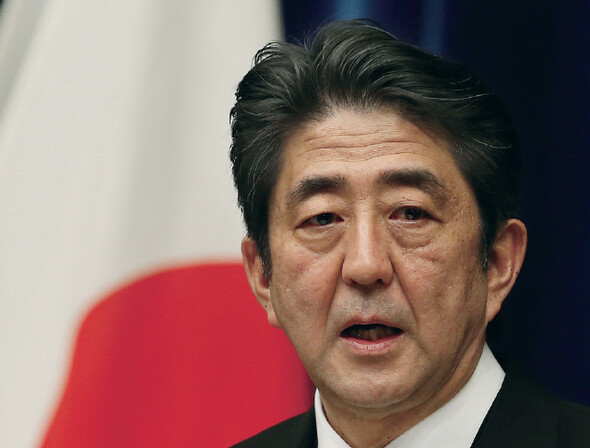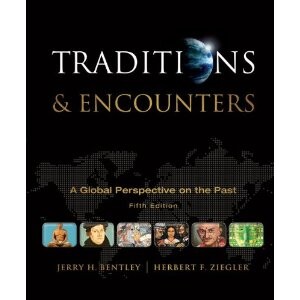hankyoreh
Links to other country sites 다른 나라 사이트 링크
Shinzo Abe’s calls for changes to US textbooks meeting resistance in the US

Japanese Prime Minister Shinzo Abe’s recent demands for “corrections” to passages about comfort women in US textbooks are meeting with a backlash in the US.
Mike Honda, a Democratic Party member of the House of Representatives, called Abe’s demands “nonsense” at an event on Jan. 30.
“Prime Minister Abe can demand revisions to American textbooks, but that doesn’t mean he’s going to get them,” Honda continued.
Honda went on to question whether Japan’s denials of historical facts could be accepted and urge Koreans to respond forcefully.
“We need to convince the Japanese government to apologize before the 54 comfort women survivors pass away,” Honda said, making a plea for South Korean churches and news outlets to reach out to their Japanese counterparts to continue telling the truth.
Honda also called on the two million Koreans residing in the US to send emails to the White House urging the US government to take action.

Abe’s remarks came during a Jan. 29 meeting of the Japanese House of Representatives budget committee, when he said he was “truly shocked” to references to the comfort women in US public high school textbooks.
He went on to say he planned to take action to demand the revision.
“The international community has not corrected things that ought to be corrected [claims that comfort women were forcibly mobilized], and the result is that textbooks like this are being made,” he said at the time.
McGraw-Hill Education, a textbook publisher singled out by Abe for its book “Traditions and Encounter”, released a recent statement acknowledging that representatives of the Japanese government had requested changes to descriptions of the comfort women in textbooks.
“Scholars stand behind the historical accuracy of the comfort women, and we strongly support the writing, research, and expressions used by the authors,” it said.
The New York Times reported on Jan. 30 that Tokyo’s push to revise the textbooks is meeting with little success.
“Korean-American groups have used their growing political clout to amend textbooks and erect monuments promoting Korean views of historical and territorial disputes with Japan,” the article noted.
“Under Mr. Abe, Japan has scrambled to catch up, dispatching diplomats to combat these efforts, with little success,” it continued. As an example, the article cited an unsuccessful attempt by Tokyo to block a Virginia state government decision last year on whether to list “East Sea” along with “Sea of Japan” as the name of the body of water east of the Korean Peninsula.
Citing historical accounts on comfort women as the single biggest issue between Seoul and Tokyo, the article stated, “Many scholars say that while there is no evidence that Japanese soldiers forcibly rounded up Korean women, many former ‘comfort women’ have testified that they were tricked or otherwise trafficked to work in the brothels against their will.”
By Park Hyun, Washington correspondent
Please direct questions or comments to [english@hani.co.kr]

Editorial・opinion
![[Column] Season 2 of special prosecutor probe may be coming to Korea soon [Column] Season 2 of special prosecutor probe may be coming to Korea soon](https://flexible.img.hani.co.kr/flexible/normal/500/300/imgdb/original/2024/0426/3317141030699447.jpg) [Column] Season 2 of special prosecutor probe may be coming to Korea soon
[Column] Season 2 of special prosecutor probe may be coming to Korea soon![[Column] Park Geun-hye déjà vu in Yoon Suk-yeol [Column] Park Geun-hye déjà vu in Yoon Suk-yeol](https://flexible.img.hani.co.kr/flexible/normal/500/300/imgdb/original/2024/0424/651713945113788.jpg) [Column] Park Geun-hye déjà vu in Yoon Suk-yeol
[Column] Park Geun-hye déjà vu in Yoon Suk-yeol- [Editorial] New weight of N. Korea’s nuclear threats makes dialogue all the more urgent
- [Guest essay] The real reason Korea’s new right wants to dub Rhee a founding father
- [Column] ‘Choson’: Is it time we start referring to N. Korea in its own terms?
- [Editorial] Japan’s rewriting of history with Korea has gone too far
- [Column] The president’s questionable capacity for dialogue
- [Column] Are chaebol firms just pizza pies for families to divvy up as they please?
- [Column] Has Korea, too, crossed the Rubicon on China?
- [Correspondent’s column] In Japan’s alliance with US, echoes of its past alliances with UK
Most viewed articles
- 1Is Japan about to snatch control of Line messenger from Korea’s Naver?
- 2‘We must say no’: Seoul defense chief on Korean, USFK involvement in hypothetical Taiwan crisis
- 3S. Korea “monitoring developments” after report of secret Chinese police station in Seoul
- 4The dream K-drama boyfriend stealing hearts and screens in Japan
- 5Division commander ordered troops to enter raging flood waters before Marine died, survivor says
- 6[Editorial] New weight of N. Korea’s nuclear threats makes dialogue all the more urgent
- 7No good, very bad game for Korea puts it out of Olympics for first time since 1988
- 8[Column] ‘Choson’: Is it time we start referring to N. Korea in its own terms?
- 9‘Weddingflation’ breaks the bank for Korean couples-to-be
- 10[Column] Season 2 of special prosecutor probe may be coming to Korea soon